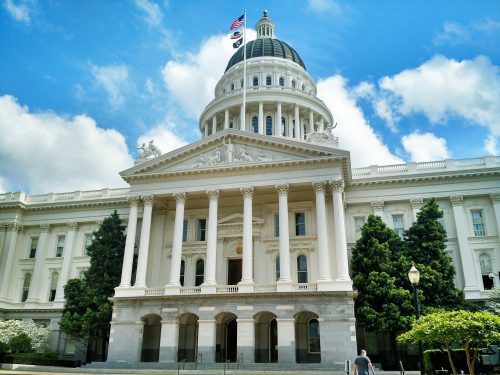
We oppose AB 2145 (Bradford)
The proposed bill limits local energy choice, violates the intent of AB 117, thwarts California’s environmental goals, infringes on local decision-making, and impedes CCAs in California.
The Clean Coalition is a nonprofit organization whose mission is to accelerate the transition to renewable energy and a modern grid through technical, policy, and project development expertise.
The Clean Coalition strongly opposes Assembly member Bradford’s anti-competition and anti Community Choice Aggregation (CCA) bill, AB 2145. The proposed legislation limits local energy choice, violates the original intent of AB 117, thwarts California’s environmental goals, infringes upon local government decision-making, and will effectively destroy the future of CCA in the state of California.
AB 2145 Limits Consumer Choice
Utility customers in California do not vote (or opt-in) to choose their utility company. The monopoly structure of the California’s investor owned utilities prohibits it. The majority of residential customers in California who could be served by a Community Choice program have no say in their energy provider, nor the energy resources that are procured on their behalf. The State should not undermine the intent of AB 117 that provided for local energy choice, nor should it value the monopoly position of investor owned utilities over the interests of a local government that has chosen to exercise its statutory right in creating a local, public, not-for-profit agency to provide an energy alternative.
AB 2145 is an Assault on AB 117
Like CCA statutes in every other state, California’s AB 117 structures CCA as opt-out programs. The opt-out approach gives customers full choice but also provides greater certainty in the market and, importantly in California, helps level the playing field for small CCAs attempting to compete in a monopoly market of very large, well-capitalized utilities. Indeed, the inherent market power of investor owned utilities against CCAs, and the use of that market power to prevent them, was recognized by the legislature in the passage of SB 790 (2011).
To date, monopoly utility providers have dominated the industry, leaving little to no opportunity for smaller market entrants to viably exist. AB 2145 serves the interests of for-profit, shareholder-centric utilities by deeply harming a CCA’s ability to achieve local scale and economic viability. An opt-in requirement for CCAs will return California to a monopoly reality – no consumer choice, less market innovation, and fewer opportunities to achieve aggressive greenhouse reduction targets.
AB 2145 Thwarts California’s Environmental Goals
Many local governments are looking to CCAs for cost effectively achieving local Climate Action Plans/GHG reduction plans that support and exceed state. AB 2514 will make achieving local and state targets more difficult and more costly, while removing a mechanism for localities to promote local clean energy development.
Due to its extremely limiting nature, a CCA opt-in program would not allow for the dramatic increase in renewable energy purchases and greenhouse gas reductions that are present in current and potential CCAs throughout California. For example, Marin Clean Energy provides more than twice the amount of renewable energy as PG&E (much of it sourced in California) and MCE’s most recent published emissions rate is 19% lower than PG&E’s. Sonoma Clean Power has offered a 100% renewable energy product to its customers sourced from an in-County geothermal facility. In fact, AB 2145 runs directly counter to the State’s AB 32 GHG reduction goals. Why? Because an opt-in approach severely limits the viability of a CCA and defaults the vast majority of would-be CCA customers to utilities with lower renewable supply portfolios, higher emissions rates, and less local accountability to rapidly switch to clean power resources.
AB 2145 Infringes Upon Local Control and Accountability
AB 2145 is an attack on a local government’s statutory right to pursue CCA in a manner that allows it to exist at the local level, respond to community goals, and still compete with large monopoly utilities. AB 2145 is a repeat attempt to kill CCA in California, similar to that of AB 976 (2011) and Proposition 16 (2010), both of which failed. The issues present in Proposition 16 that supported monopoly protection have already been addressed and rejected by California voters. AB 2145 is another blatant attempt to limit energy choice and local decision-making. It should be opposed.
AB 2145 is a Red-Herring Bill
In order to stop the expansion of CCA in California, AB 2145 creates the perception of a problem where none exists. As mandated by AB 117, a formal opt-out process begins after months (even years) of local CCA development, local press, and public outreach. Every utility customer is given multiple ways over a minimum four-month public noticing process to make a choice when a CCA begins offering service in a new community. At least four opt-out notices are served upon every customer in a CCA jurisdiction, which is in addition to all the other public outreach mentioned above. Moreover, customers can easily opt out at any time after the formal public noticing process. There is no such requirement or frankly, opportunity, for customers of existing monopoly utilities.
In Conclusion
The Clean Coalition urges California policymakersto oppose AB 2145. In doing so, you will be protecting the interests of California consumers and the right of local governments to choose CCA as an energy alternative on behalf their community.

